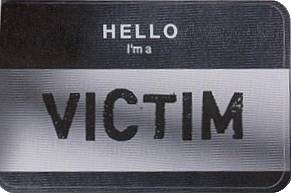
I believe that all players in the game need help. There is a dynamic that needs to be broken and each participant, whether directly or not, can break the bullying cycle. In the next chapters, I will write tips to help each of the players to break the bullying cycle. This post contains tips for the bullied victim.
Since I believe a holistic approach is best in creating social change, I will direct these tips at both kids and adults. Helping bullied kids and adults will make sure they do not continue the cycle by bullying others to gain some perceived power that was lost.
There are 100 tips on the list (25 in each post). Each of them separately can make a huge change in your life. Study them carefully and find those you think are easy enough for you to apply. If you are a parent and you want to help your bullied child or prevent your child from being bullied, find techniques that are easy enough to explain and to apply and focus on each of them separately. Most of the tips are about building your emotional and social intelligence, so anyone can use of them.
How to help bullied victims (tips 1-25)
- Bullies are terrorists. Your fear is their weapon. The difference between terrorists and bullies is the scale and that terrorism is more organized, but both are wrong, immoral and illegal. You must understand this to fight it!
- You must understand that any bullying act against you is not your fault. Everyone who is a bully is weak. Whenever you experience bullying or watch bullying, remember bullies are weak and with their bullying, they try to cover up their own feelings of weakness and fear.
- Never accept the belief that someone hurt you because of something you did or did not do. It is not right, even when you have done something wrong. Trying to convince you that you deserve this attitude is part of the abuse, but nobody deserves to be bullied.
- Stay away from people you think are bullies.
- Staying away from bullies is a good idea, but sometimes, that person is not someone you can stay away from (parent, teacher, boss). In this case, lower your profile for a while (take a deep breath and do as little as possible to aggravate the situation), until you find a solution.
- Join a social group and hang around other people as much as you can. Bullies pick on you more when you are by yourself.
- Find a hobby to widen your social circle and build your confidence.
- Offer to help and be generous. It will strengthen your position in the social group.
- When walking to school, always walk with someone. Even a younger person is better than walking on your own.
- If you can, walk to school earlier or later than your bully to make sure you do not meet on the way to and from school.

- If someone bullies you on your way to school, run to the closest home, knock on the door and call out a name, like you know someone who lives there. Bullies are scared of people and will not risk running after you into a strange house.
- If you are bullied away from home (like a park or a shopping center), walk to the nearest adult and ask for help. As soon as a bully sees you with an adult, he or she will stay away.
- If you are taking the bus and you are worried, sit close to the bus driver. Whenever there is an adult nearby, bullying decreases and the driver is always there.
- If you are at school, try walking with a friend all the time. Schools in the early years send kids to places in pairs to make sure nothing happens to them. This is a good rule, so try adopting it. If you walk or ride the bus to school, try coordinating it with a sibling, a neighbor or a friend.
- Look around and find other kids by themselves. Two unconfident kids are always better together than each one is on their own.
- If you can, hang around popular kids. Make sure they are not bullies and be in their company. Popular, confident kids (people) suffer a lot less bullying.
- Hang around “defenders”, those who are not afraid to stand for justice. You can count on them to call someone when you are hurt or intervene to stop the bullying.
- Research on bullying in schools discovered there are some places where bullying happens more often than in others. These are typically toilets, empty rooms and empty playgrounds, but each school may have other ones. Find those places and stay away from them as much as you can or only go there with someone else.
- If you want a quiet place, go to the library. When there are teachers around, there is less bullying.
- If a bully tells you a secret that puts someone else in danger, tell an adult. Tell someone you trust. If you don’t trust anyone, try sending the message to someone who will do something about it. Make sure not to use anything that will identify you. Do not send info from your email, use your own handwriting or your own voice. Try touch-typing or asking someone to make a phone call for you from a public phone.
- If you are worried while in class or in the schoolyard, play or position yourself next to the teacher in charge. Again, when adults are around, bullying decreases by 30%. That is a lot, so take advantage of it. Adults are your allies against bullying.
- Bullying is not forever. It will end! Every the most successful person in the world can tell you about being a victim of bullying. Stay optimistic and keep saying to yourself, “This is going to end!”
- Learn to take things in perspective. Some incidents are not real bullying but rather disagreements. When you find yourself in a safe place, relax and think about them again.
- The more kids around you, the better, so play with a group. When you go out to play, look for big games you can join. This way, you will be protected better and have more friends later if you need them.
Join me next week for the next 25 tips to help the bullying victim.
Be happy,
Ronit
This post is part of the series Bullying:
- Bullying Facts and Myth
- Bullying Statistics are Scary
- What is NOT Bullying?
- Types of Bullying
- Why Do People Bully?
- Victims of Bullying
- Bullying Bystanders
- Home of the bully
- Home of the bully (2)
- Workplace Bullying
- Workplace Bullying (2)
- How to Help Bullying Victims
- How to Help Bullying Victims (2)
- How to Help Bullying Victims (3)
- How to Help Bullying Victims (4)
- How to Help Bullying Bystanders
- How to Help Bullying Bystanders (2)
- How to Stop Workplace Bullying
- How to Stop Workplace Bullying (2)
- How Workplace Bullying Bystanders Can Break the Cycle
- How Organizations Can Stop Bullying
- How Organizations Can Stop Bullying (2)
- Bully Parents
- How to Stop Parental Bullying
- How to Stop Parental Bullying (2)
- How to Stop Parental Bullying (3)
- How to Stop Parental Bullying (4)
- How to Stop Parental Bullying (5)
- How to Stop Parental Bullying (6)
- How to Stop Parental Bullying (7)
- How to Stop Parental Bullying (8)
- How to Stop Parental Bullying (9)
- How to Stop Parental Bullying (10)
- How to Stop Parental Bullying (11)
- How to Stop Bullying with Empathy: The Story of Two Apples












